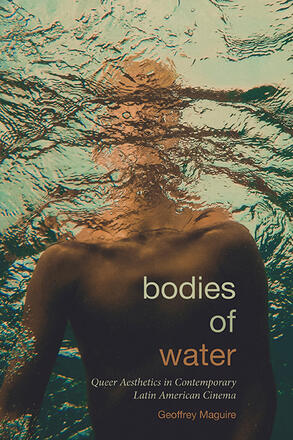
Bodies of Water
Queer Aesthetics in Contemporary Latin American Cinema
Alternative formats available from:
Explores how watery spaces provoke radical modes of screening queer corporeality in a diverse range of contemporary Latin American films.
Description
Rivers, swimming pools, lakes, and oceans: these watery spaces recur with remarkable frequency in recent queer Latin American cinema, urging us to question the intimacies between queerness and the aquatic. Unpredictable and uncontrollable, water reflects a natural fluidity in our sexual desires and orientations; it is both a space and a substance, one in which bodies surrender themselves to the natural forces of currents and flows. As the first book to investigate water's queer cinematic potential, Bodies of Water proposes that we think not only about water but also through it, illuminating new directions for the study of queer world cinema and its evolving aesthetic strategies. Bodies of Water engages critically with theories of cinematic embodiment and recent work in queer theory and the environmental humanities, foregrounding a region of the world historically overlooked in global discussions of queerness. By examining the radical queer epistemologies that emerge at the convergence of body, camera, and water, Bodies of Water ultimately poses a question of both critical and sociopolitical concern: what's so queer about cinematic waters?
Geoffrey Maguire is Associate Professor of Spanish at Gonville and Caius College, University of Cambridge. He is the author of The Politics of Postmemory: Violence and Victimhood in Contemporary Argentine Culture and coeditor (with Rachel Randall) of New Visions of Adolescence in Contemporary Latin American Cinema.
Reviews
"A major contribution, Bodies of Water conjugates Latin American queer cinema studies and the blue humanities in ways that are illuminating and transformational. Lucid and fluid throughout, with nuanced and detailed film analyses, the book enriches our understanding of the queer aquatic poetics of alterity, identity, belonging, and more." — Juli A. Kroll, author of Body, Gender, and Sexuality in Latin American Cinema: Insurgent Skin